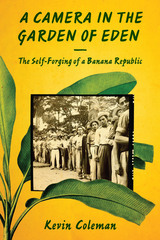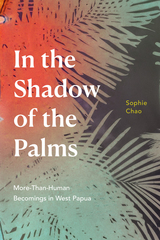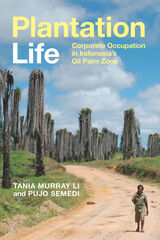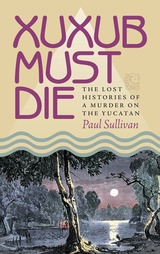
In the early twentieth century, the Boston-based United Fruit Company controlled the production, distribution, and marketing of bananas, the most widely consumed fresh fruit in North America. So great was the company’s power that it challenged the sovereignty of the Latin American and Caribbean countries in which it operated, giving rise to the notion of company-dominated “banana republics.”
In A Camera in the Garden of Eden, Kevin Coleman argues that the “banana republic” was an imperial constellation of images and practices that was checked and contested by ordinary Central Americans. Drawing on a trove of images from four enormous visual archives and a wealth of internal company memos, literary works, immigration records, and declassified US government telegrams, Coleman explores how banana plantation workers, women, and peasants used photography to forge new ways of being while also visually asserting their rights as citizens. He tells a dramatic story of the founding of the Honduran town of El Progreso, where the United Fruit Company had one of its main divisional offices, the rise of the company now known as Chiquita, and a sixty-nine day strike in which banana workers declared their independence from neocolonial domination. In telling this story, Coleman develops a new set of conceptual tools and methods for using images to open up fresh understandings of the past, offering a model that is applicable far beyond this pathfinding study.


Drawing on a dozen years of archaeological and historical investigation, Allan Meyers breaks new ground in the study of Yucatán haciendas. He explores a plantation village called San Juan Bautista Tabi, which once stood at the heart of a vast sugar estate. Occupied for only a few generations, the village was abandoned during the revolutionary upheaval. Its ruins now lie within a state-owned ecological reserve.
Through oral histories, archival records, and physical remains, Meyers examines various facets of the plantation landscape. He presents original data and fresh interpretations on settlement organization, social stratification, and spatial relationships. His systematic approach to "things underfoot," small everyday objects that are now buried in the tropical forest, offers views of the hacienda experience that are often missing in official written sources. In this way, he raises the voices of rural, mostly illiterate Maya speakers who toiled as laborers. What emerges is a portrait of hacienda social life that transcends depictions gleaned from historical methods alone.
Students, researchers, and travelers to Mexico will all find something of interest in Meyers's lively presentation. Readers will see the old haciendas—once forsaken but now experiencing a rebirth as tourist destinations—in a new light. These heritage sites not only testify to social conditions that prevailed before the Mexican Revolution, but also remind us that the human geography of modern Yucatán is as much a product of plantation times as it is of more ancient periods.


Today, foreigners travel to the Yucatan for ruins, temples, and pyramids, white sand beaches and clear blue water. One hundred years ago, they went for cheap labor, an abundance of land, and the opportunity to make a fortune exporting cattle, henequen fiber, sugarcane, or rum. Sometimes they found death.
In 1875 an American plantation manager named Robert Stephens and a number of his workers were murdered by a band of Maya rebels. To this day, no one knows why. Was it the result of feuding between aristocratic families for greater power and wealth? Was it the foreseeable consequence of years of oppression and abuse of Maya plantation workers? Was a rebel leader seeking money and fame—or perhaps retribution for the loss of the woman he loved?
For whites, the events that took place at Xuxub, Stephens’s plantation, are virtually unknown, even though they engendered a diplomatic and legal dispute that vexed Mexican-U.S. relations for over six decades. The construction of "official" histories allowed the very name of Xuxub to die, much as the plantation itself was subsumed by the jungle. For the Maya, however, what happened at Xuxub is more than a story they pass down through generations—it is a defining moment in how they see themselves.
Sullivan masterfully weaves the intricately tangled threads of this story into a fascinating account of human accomplishments and failings, in which good and evil are never quite what they seem at first, and truth proves to be elusive. Xuxub Must Die seeks not only to fathom a mystery, but also to explore the nature of guilt, blame, and understanding.
READERS
Browse our collection.
PUBLISHERS
See BiblioVault's publisher services.
STUDENT SERVICES
Files for college accessibility offices.
UChicago Accessibility Resources
home | accessibility | search | about | contact us
BiblioVault ® 2001 - 2024
The University of Chicago Press









